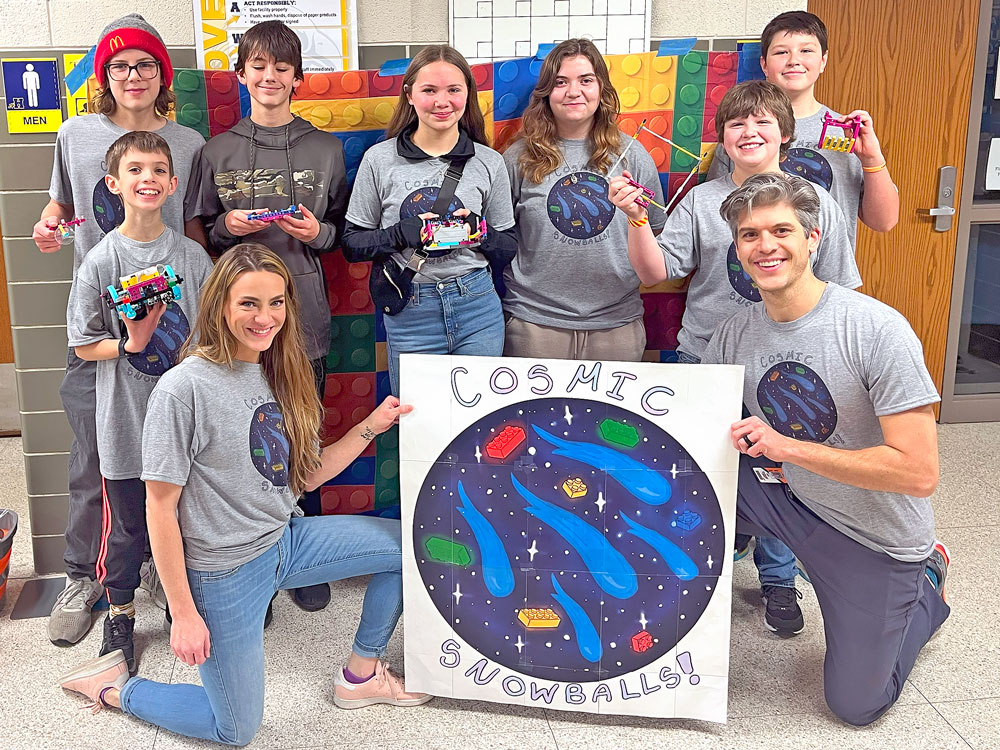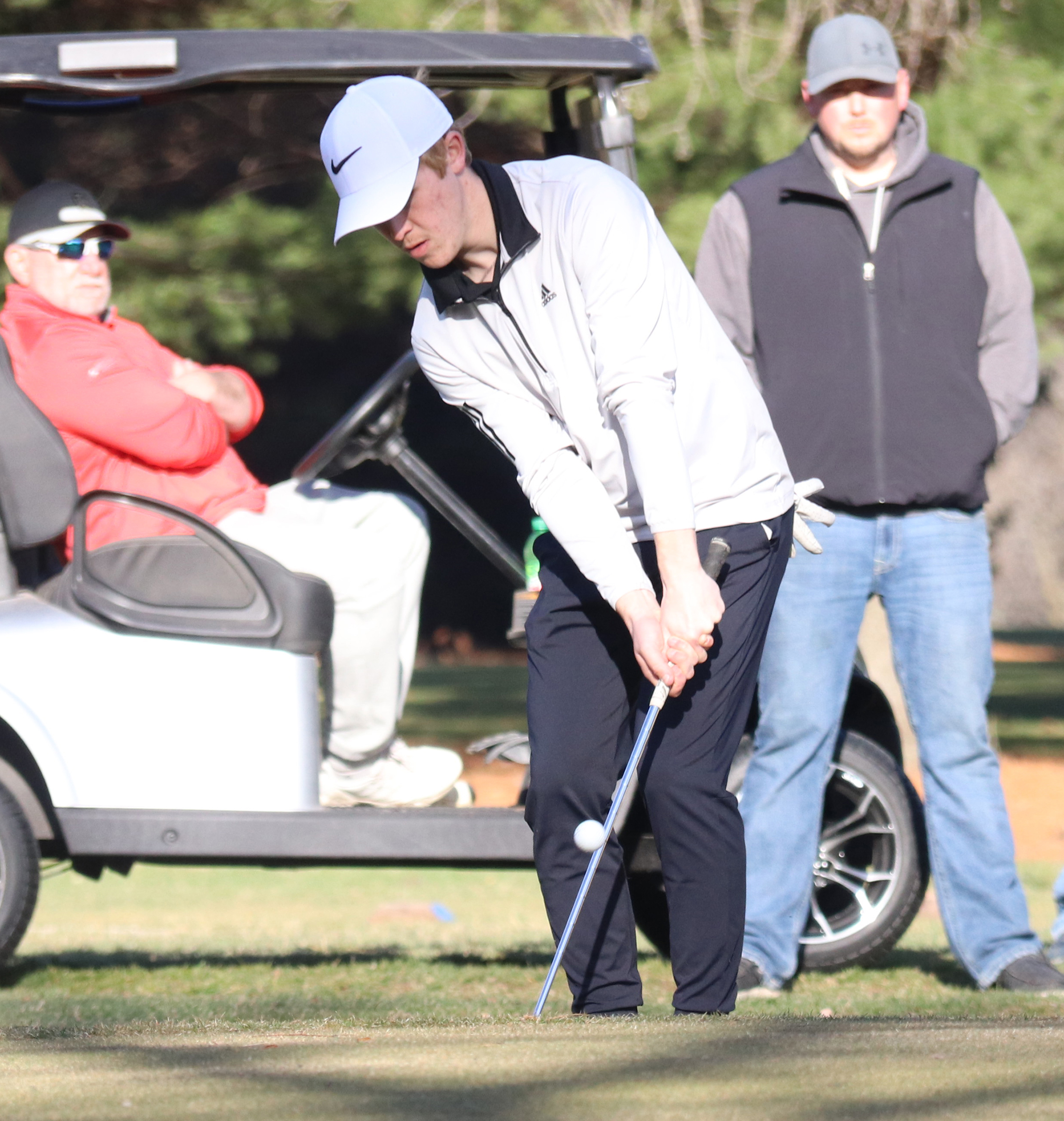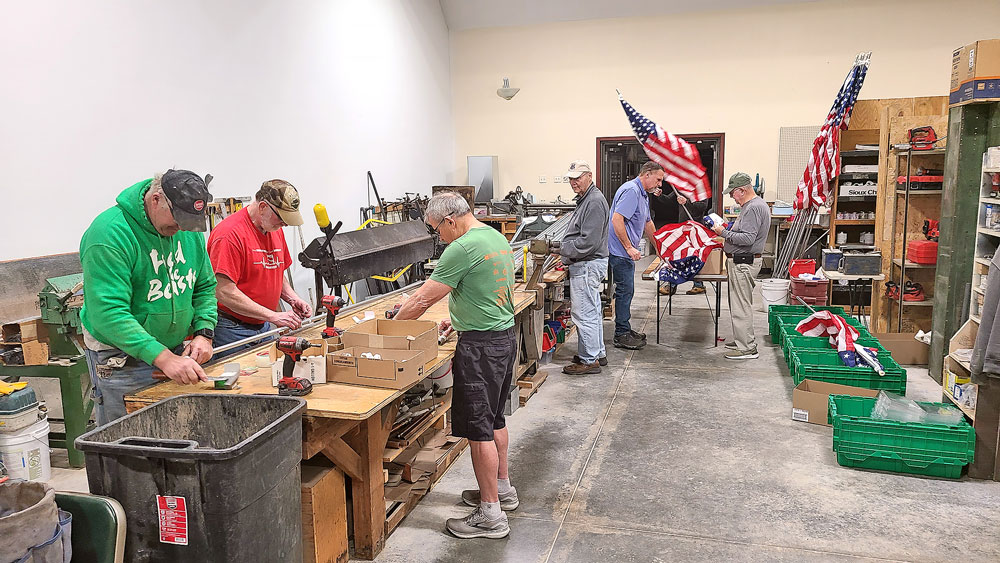Local substance abuse prevention group discusses tobacco use

By Kelly Terpstra, kterpstra@charlescitypress.com
The national statistics concerning underage smoking don’t paint a pretty picture.
It’s a situation that has seen a number of cities and states across the nation raise the age to purchase tobacco products to 21.
Iowa has yet to implement such a law.
An open and free-flowing discussion was undertaken this week by a local Charles City substance abuse prevention group to discuss just that.
The topic was presented in the Zastrow Room of the Charles City Public Library this past Tuesday when FOCUS (Free Our Community of Unwanted Substances) met for its quarterly meeting and discussed the hot-button issue.
According to tobacco21.org — which moderator Shelley Smith of Community Partnerships referenced throughout the meeting — more than 28 percent of the nation now requires adults to be 21 years of age to purchase tobacco products. More than 95 percent of cigarette smokers start before the age of 21, according to the website.
“If you start before age 18 you are 88 percent more likely to be a lifetime user,” said Smith, an outreach prevention specialist who is an independent contractor.
Currently, purchasers of tobacco — including cigarettes, smokeless tobacco, electronic vaping devices and e-cigarettes — must be at least 18 in Iowa. A bill in the Iowa Legislature three years ago to raise the required age to 21 was defeated in a senate subcommittee.
Minnesota has more than 30 counties that set the tobacco purchase age at 21. There is a drive to make that ordinance a Minnesota state law.
“This is all about access,” said Smith.
Smith said 11 states have made it a state law and 12 other states have some form of local ordinances in place.
Tobacco21.org says tobacco kills over 480,000 people a year and 350 youth become smokers each day in the U.S. A year after the age-21 implementation, Chicago saw a 36 percent decrease in 18-20 year olds that reported currently smoking cigarettes.
“We can all sit here and be aware that 75 percent of youth are using and none of us are happy with that. But, do the youth even know that? Do they know that there’s a stand?” said Smith.
Questions brought up about raising the age to purchase tobacco ranged from how would police agencies enforce the law to what would happen to various programs across the state that are funded by taxes that are generated from the sale of tobacco?
“Every time I see taxes being eliminated, I see programs being eliminated,” said Kelly Smith Arickx, an educator with the RRMR School District.
Other people wondered if someone would be ticketed for smoking in public if they were 20 years old.
The legalization of marijuana also came up and whether or not that could play a role in a city or a county adopting a policy to raise the required age to buy tobacco products.
“I’m not going into the marijuana discussion outside of there is no low-risk smoking,” said Smith.
Mayor Dean Andrews was at the meeting, and said his thoughts were geared more toward personal decisions that one has to make for themselves when they reach adulthood or enter college.
“I don’t think you should have it in high school, but once you’re out of high school, some of it has to be your life choice,” said Andrews.
Dan Caffrey, a juvenile liaison court officer for Charles City High School, says he knows of only a handful of teens that smoke traditional cigarettes. He said 75 to 80 percent of the students he deals with use vaping devices.
“I know for a fact that we have brothers and sisters, even kids in the high school, that are getting vapes and taking them to the middle school students and selling to them,” said Caffrey.
Smith said national polls show three out of four people support tobacco initiatives. She also said several local polls have been conducted online or at other various media outlets and the majority of respondents were in favor of raising the age to purchase tobacco.
“When we look at other potential regulations, understand that’s a huge industry that knows they are buying their lifetime consumer under age 18 and the marketing reflects that,” said Smith.
Scott Jensen, who is a juvenile probation officer in Floyd County, said the health benefits are worth making a change to Iowa’s tobacco purchase age.
“Again, we’re not talking about individual liberties when you want to be 21 or older and you want to smoke. That’s your choice. Especially to our young people, they need to get the message – it’s unhealthy. There’s not one benefit of smoking in your lifetime health,” said Jensen.
Steve Meneley works as a prevention specialist at Prairie Ridge in Mason City, a substance abuse treatment center. He said educating and informing people at an early age is essential in stopping someone from becoming addicted to nicotine.
“As we study the brain and what we’re doing at Prairie Ridge, the earlier you start something the more chance you have of addiction,” said Meneley. “That’s the basic rule.”
Linda Tjaden, a member of the Floyd County Board of Supervisors, said she looked at the issue from a motherly perspective.
“The best you can do as parents up until that point is to try and help guide them. By the time that they get to that age, they’re on their own. Hopefully you’ve done your job,” said Tjaden. “I think we as a community or a county or anything else, we need to do what we can to educate kids. If we have done nothing, I don’t think that’s the answer, either.”
Smith, the moderator, said she had no personal agenda regarding the issue and just wanted to explore information with the group.
“We just want to measure the readiness, the resources, the education. We have the data. We know from a health aspect what would be the right thing to do — no tobacco is beneficial,” said Smith. “This is really valuable information to be able to report back to our community health coach.”








Social Share